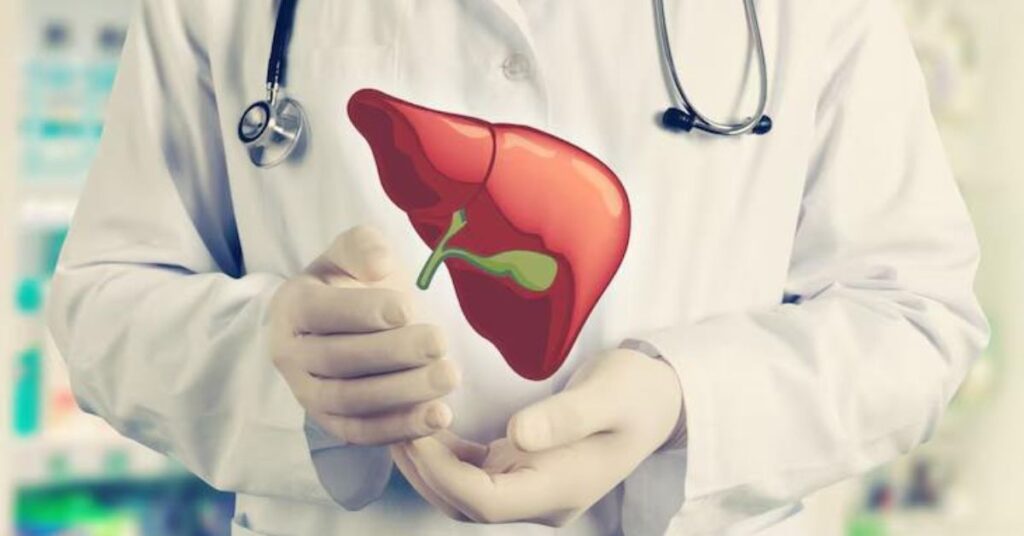Fatty liver disease, commonly known as Non-Alcoholic Fatty Liver Disease (NAFLD), occurs when excess fat accumulates in the liver. This condition is not caused by alcohol consumption. While it may sound concerning, fatty liver disease is relatively common and, in many cases, manageable. However, if left untreated, it can lead to serious liver damage. Understanding the causes, recognizing the symptoms, and knowing the available treatment options are key steps to effectively manage this condition. If you suspect you have fatty liver disease, consulting the best liver doctor in Indore is essential for proper diagnosis and care.
What is Fatty Liver Disease?
Fatty liver disease happens when too much fat builds up in the liver cells. In its early stages, the disease often causes no symptoms, but over time it can lead to inflammation, scarring (cirrhosis), and even liver failure. There are two main types of fatty liver disease:
- Non-Alcoholic Fatty Liver Disease (NAFLD): This type is not related to alcohol consumption and is commonly associated with obesity, diabetes, and high cholesterol.
- Alcoholic Fatty Liver Disease (AFLD): This type is caused by excessive alcohol consumption.
In this blog, we will focus on NAFLD, as it is the more common form.
Causes of Fatty Liver Disease
Fatty liver disease is mainly caused by lifestyle factors, though genetics and other health conditions also play a role. Common causes include:
- Obesity: Excess weight, especially around the abdomen, is a major cause of fatty liver disease. Fat cells release inflammatory substances that increase fat accumulation in the liver.
- Type 2 Diabetes: Insulin resistance in people with type 2 diabetes makes it harder for the liver to process fat properly, leading to fat buildup.
- High Cholesterol and High Blood Pressure: Elevated levels of cholesterol and triglycerides can contribute to fatty liver development.
- Poor Diet: Diets high in sugar, unhealthy fats, and processed foods can increase the risk of fatty liver disease.
- Sedentary Lifestyle: A lack of physical activity leads to weight gain and insulin resistance, both of which are linked to fatty liver.
- Genetics: Some people may be more genetically predisposed to fatty liver disease, even if they maintain a healthy lifestyle.
Symptoms of Fatty Liver Disease
In the early stages, fatty liver disease might not show any obvious symptoms. As the disease progresses, individuals may begin to notice the following signs:
- Fatigue: A common symptom of fatty liver disease is feeling unusually tired or weak.
- Abdominal Discomfort: Some people may feel a dull ache or discomfort on the upper right side of the abdomen, where the liver is located.
- Unexplained Weight Loss: Sudden or unexplained weight loss can be a sign of advanced fatty liver disease.
- Jaundice: Yellowing of the skin or eyes can indicate liver dysfunction.
- Swelling: Fluid buildup in the abdomen (ascites) or legs can occur if liver function worsens.
If you notice any of these symptoms, it’s important to see a healthcare professional. A best liver doctor in Indore can evaluate your condition and recommend appropriate treatment.
Treatment Options for Fatty Liver Disease
The good news is that fatty liver disease is treatable, especially when caught early. The goal of treatment is to reduce fat in the liver, manage underlying conditions, and prevent further liver damage. Here are some key treatment options:
1. Lifestyle Changes
- Weight Loss: Losing weight through a combination of healthy eating and exercise can significantly reduce liver fat. Even a 5-10% reduction in body weight can make a noticeable difference.
- Exercise: Regular physical activity, such as walking, jogging, or swimming, can help reduce liver fat and improve your overall health.
- Healthy Diet: A balanced diet with plenty of fruits, vegetables, whole grains, and healthy fats can support liver function. Cutting down on sugar, refined carbs, and processed foods is crucial.
2. Managing Underlying Conditions
- Control Diabetes: If you have type 2 diabetes, controlling blood sugar levels can help reduce liver fat and prevent further damage.
- Cholesterol and Blood Pressure Management: Medications to manage high cholesterol and blood pressure can help prevent the progression of fatty liver disease.
3. Medications
- While there are no specific FDA-approved medications for fatty liver disease, doctors may prescribe treatments to manage associated conditions like diabetes, high cholesterol, or obesity.
4. Regular Monitoring
- For those diagnosed with fatty liver disease, regular checkups and liver function tests are essential. Monitoring helps detect any changes in liver health and prevents complications.
5. Advanced Treatment
- In severe cases, such as cirrhosis or liver failure, a liver transplant may be necessary if the liver is no longer functioning properly.
When to See a Doctor
If you’re at risk of fatty liver disease due to obesity, diabetes, or other factors, it’s important to undergo regular checkups. If you notice any symptoms such as fatigue, abdominal pain, or jaundice, don’t wait—see a doctor immediately. A best liver doctor in Indore can conduct tests like blood work or imaging to diagnose fatty liver disease and create a tailored treatment plan for you.
Fatty liver disease is a common yet serious condition that can cause significant liver damage if not addressed. By making healthy lifestyle changes, managing underlying health conditions, and seeking timely treatment, you can control the disease and protect your liver. If you suspect you may have fatty liver disease, consulting a best liver doctor in Indore is an important step in safeguarding your health and preventing further complications.




